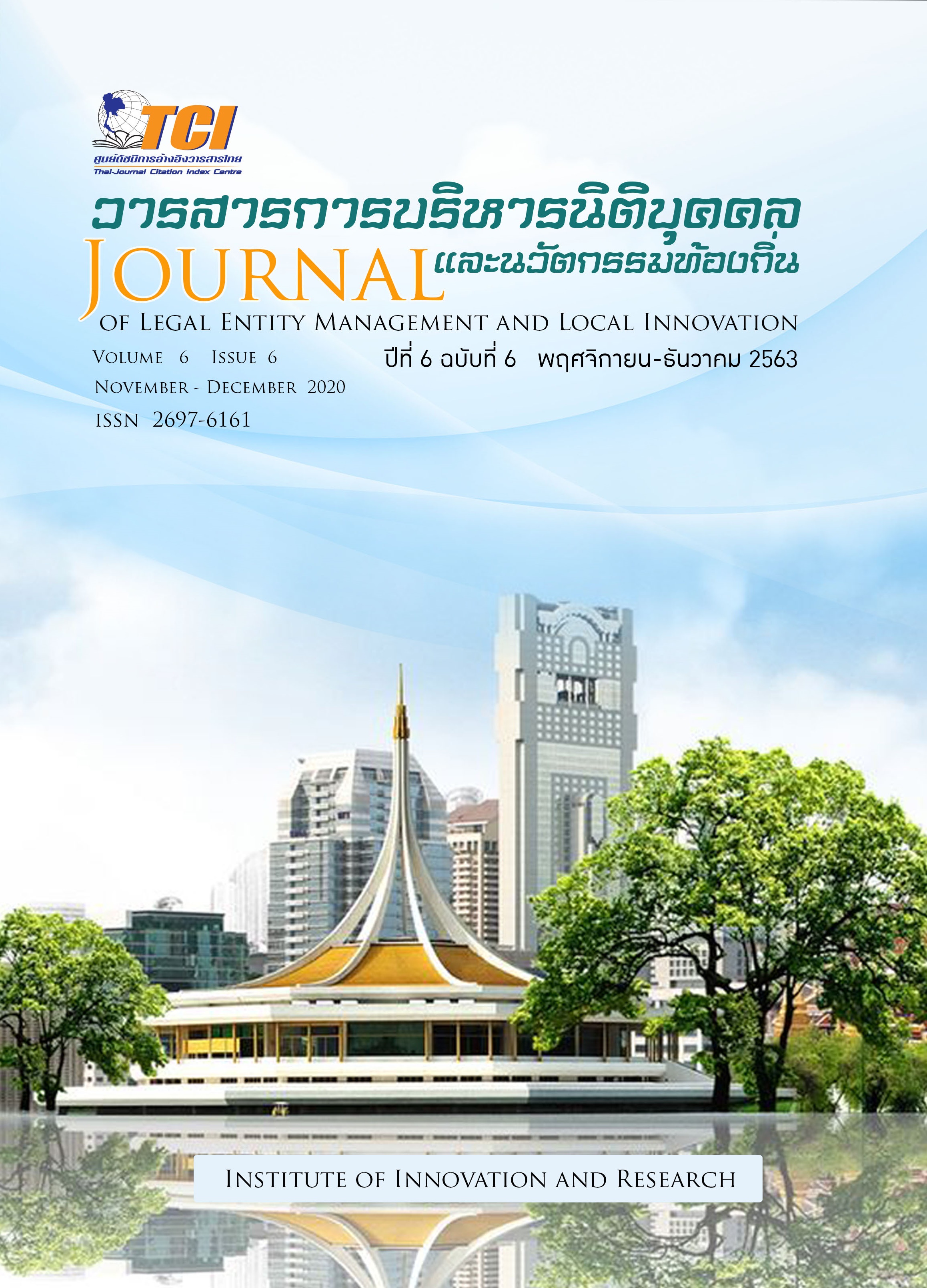Factors Affecting Financial Technology Acceptance for Tax Payment at Suvarnabhumi Airport Cargo Clearance Customs Bureau
Keywords:
Financial Technology, Acceptance, Tax PaymentAbstract
The purposes of this research were to: 1) study tax and duty payment behavior, factors influencing acceptance and levels of acceptance of tax and duty payment technology of Suvarnabhumi Airport Cargo Clearance Customs Office; 2) compare levels of acceptance of tax and duty payment of Suvarnabhumi Airport Cargo Clearance Customs Office categorized by individual factors; 3) compare levels of financial technology acceptance for tax and duty payment at Suvarnabhumi Airport Cargo Clearance Customs Bureau regarding to tax and duty payment behavior; 4) find correlations among factors relevant to financial technology acceptance for tax and duty payment at Suvarnabhumi Airport Cargo Clearance Customs Bureau. The sample group consisted of service users who pay taxes, customs, fees and other revenues at counters of Suvarnabhumi Airport Cargo Clearance Customs Bureau. The calculation was adapted from unknown size formula of W.G. Cochran. The sample size was determined at 385 cases. The convenience sampling was used for selecting the sample group. The research tool comprised of 5-scale questionnaire and reliability was 0.95. The statistics used for data analysis were frequency, percentage, mean, standard deviation, T-test, F-test, LSD and correlation coefficient. The statistical significance level was set at 0.05.
The results proved that: 1) the majority of respondents were representatives who pay taxes and duty to import goods/ personal items; they paid taxes and duty by cash in accordance with company policies. They mostly used services during working hours (08.30a.m. - 16.30p.m.) at the accounting and customs department (BC1 Building). The mean of factors influencing acceptance was at high level. Also, the mean of data relevant to financial technology acceptance for tax and duty payment was at high level; 2) respondents with different gender, status, age, education background, monthly income had no difference in financial technology acceptance for taxes and customs payment; while different occupation had different financial technology acceptance for taxes and duty payment; 3) respondents with different service objectives had no different in financial technology acceptance for taxes and duty payment. The different service period, service place, type of service user, service requirement, payment method and person involved in decision for taxes and duty payment had different financial technology acceptance for taxes and duty payment; 4) factors relevant to attitude, system capacity, privacy, risk recognition, electronics card confidence had correlation with financial technology acceptance, benefit recognition and user-friendly recognition.


